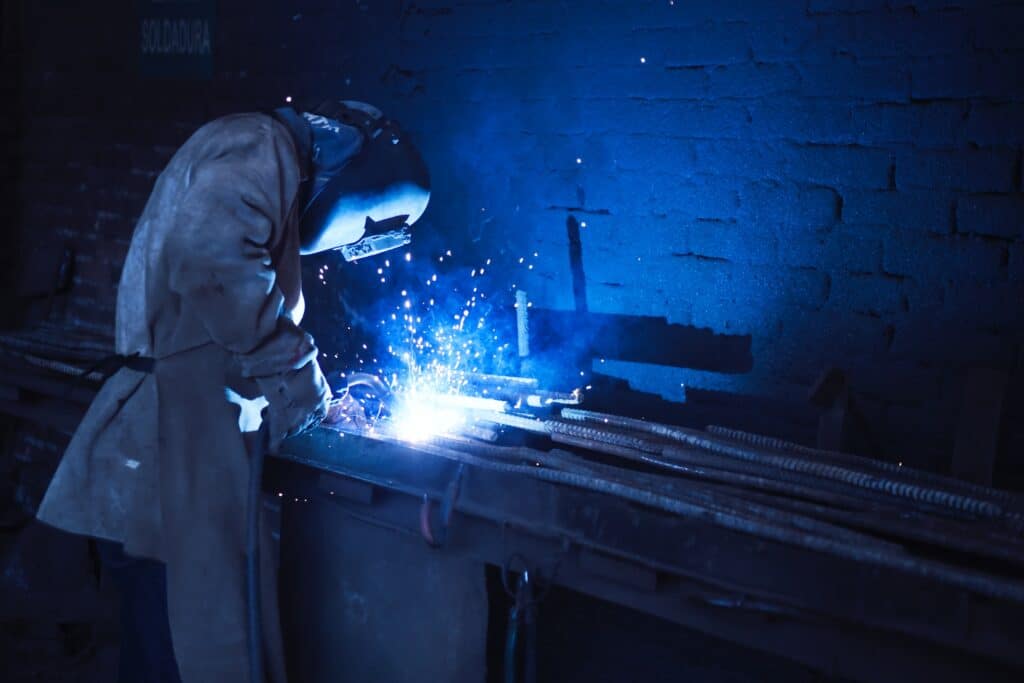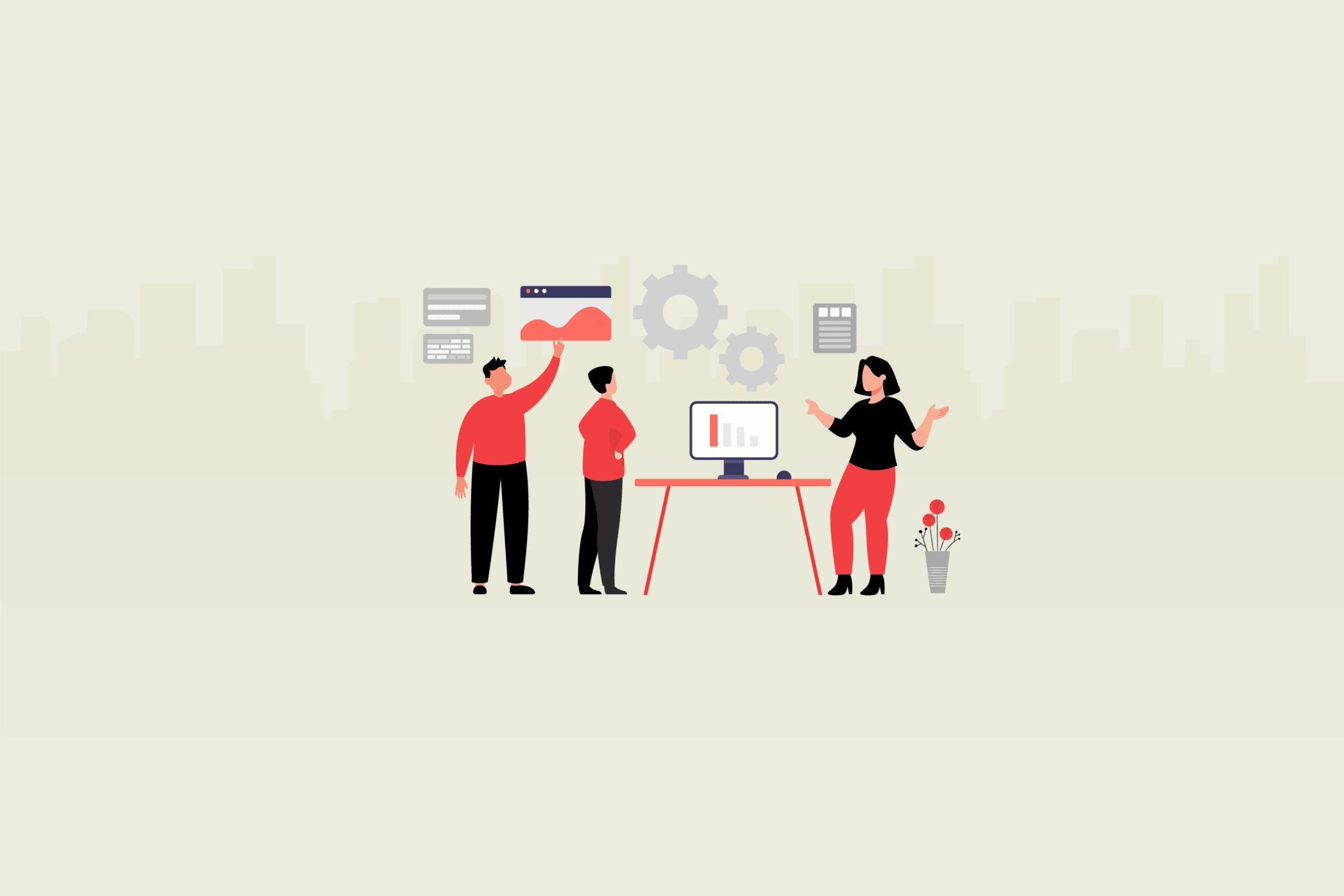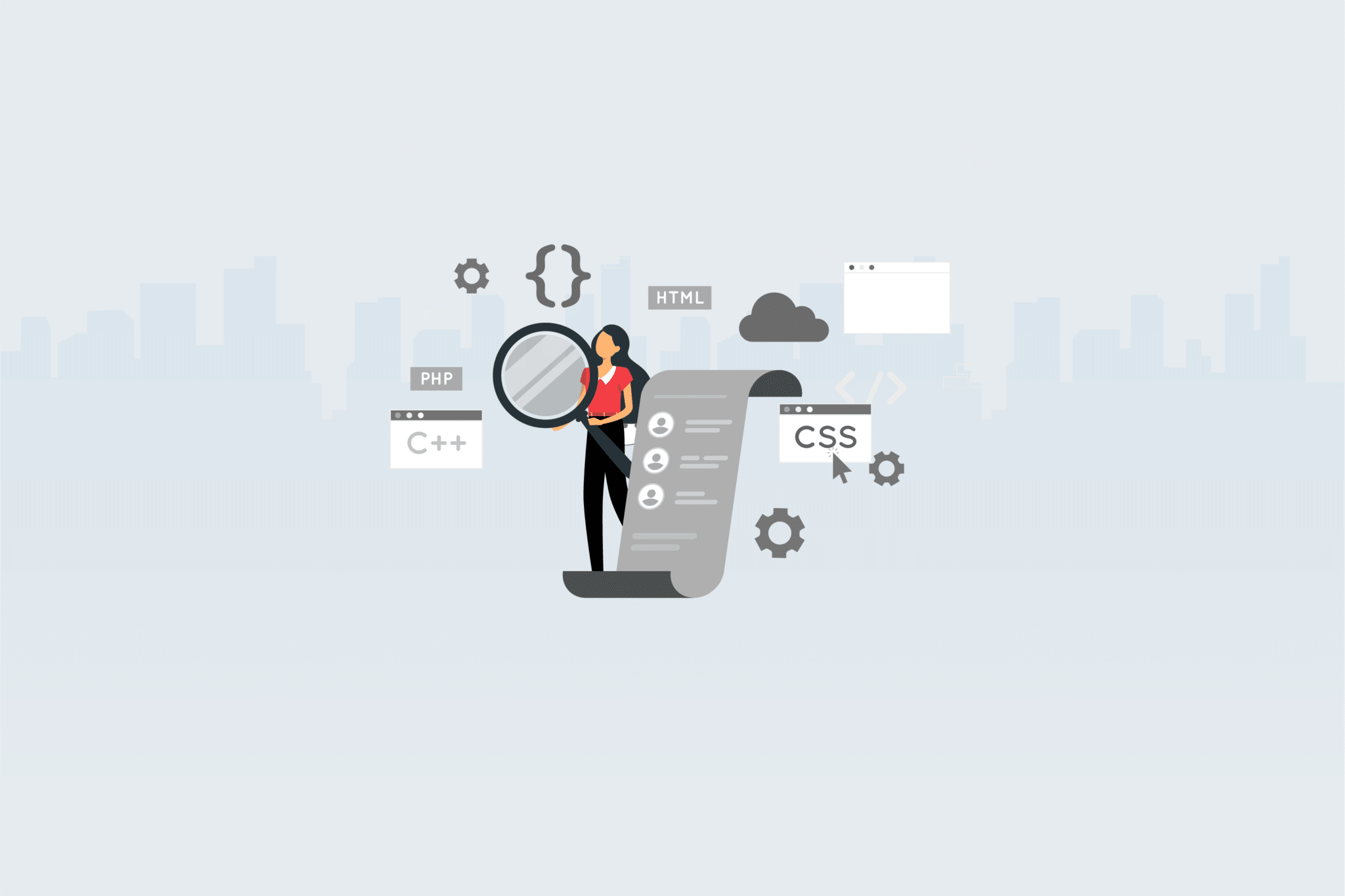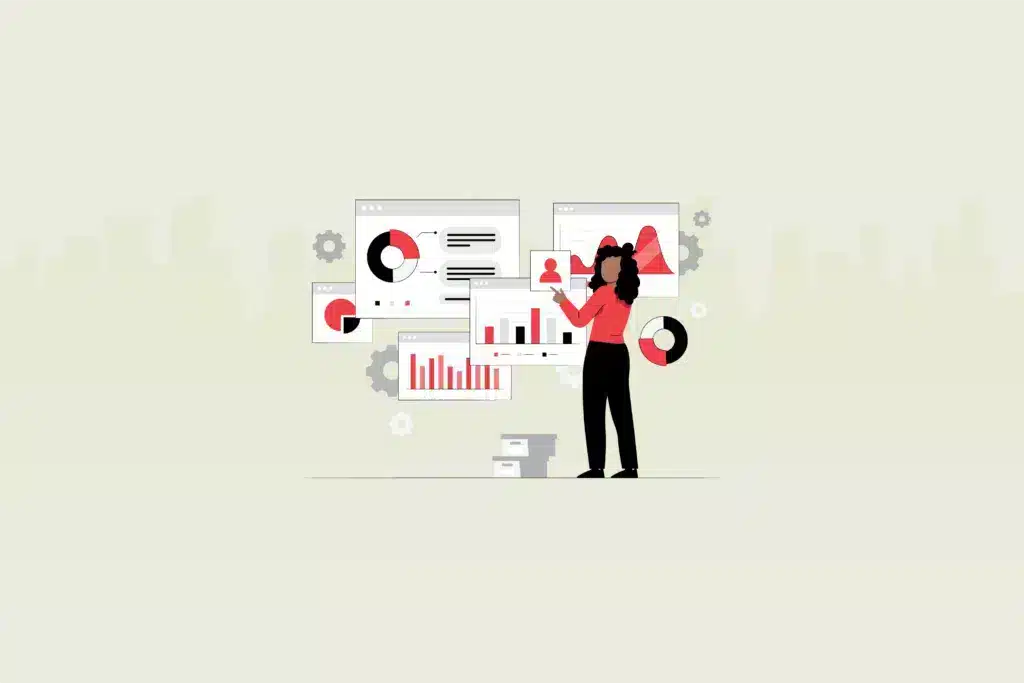Hiring a skilled boilermaker is a critical decision that can significantly impact the success of your industrial projects. Boilermakers are the artisans behind the scenes, responsible for fabricating, assembling, and maintaining the sturdy structures that power various industries. From constructing boilers to welding intricate metal components, their work is integral to ensuring efficient operations and upholding safety standards.
In this comprehensive guide, we delve into the essential steps for hiring a boilermaker who not only possesses the technical skills required for the role but also aligns with your organization’s values and goals. From understanding the nuances of the role to crafting a compelling job description, sourcing candidates, conducting effective interviews, and evaluating their safety consciousness, we cover it all. Additionally, we explore the art of negotiating offers and orchestrating a seamless onboarding process to integrate your newly hired boilermaker smoothly into your team.
Whether you’re a part of the manufacturing, construction, or energy sector, finding the right boilermaker can make all the difference in the quality and safety of your projects. Let’s embark on this journey to discover the strategies and insights that will enable you to hire a boilermaker who will not only excel in their craft but also contribute to the growth and success of your organization.
Understanding the role of a boilermaker
The role of a boilermaker is fundamental to industries reliant on heavy machinery and infrastructure. Boilermakers are skilled craftsmen who specialize in the fabrication, assembly, installation, and maintenance of boilers, pressure vessels, and other large metal structures. These structures are crucial components in various sectors, including manufacturing, power generation, petrochemicals, and construction.
Boilermakers play a pivotal role in ensuring the safe and efficient operation of industrial processes. They are responsible for constructing and repairing boilers that generate steam, which is often used for powering machinery or heating spaces. Additionally, they handle pressure vessels that store and transport hazardous materials, making their precision and attention to detail paramount.
The diverse responsibilities of a boilermaker encompass blueprint reading, cutting and shaping metal, welding and joining components, as well as conducting thorough inspections for structural integrity and safety compliance. They work in environments that demand a strong understanding of safety protocols, as their tasks involve working with high temperatures, heavy materials, and potentially hazardous substances.
In essence, boilermakers are the backbone of industries that rely on sturdy, well-maintained equipment. Their skill set combines technical expertise with a keen eye for detail, making them instrumental in ensuring the longevity and reliability of industrial infrastructure. As you consider hiring a boilermaker, recognizing the significance of their role will aid in finding a candidate who can contribute effectively to your organization’s operations.
Identifying the skill set and qualifications
Identifying a boilermaker with the right skill set and qualifications is crucial to ensuring the success and safety of your projects. Boilermakers are skilled professionals who require a combination of technical expertise and practical experience. When seeking to hire a boilermaker, consider the following key skills and qualifications:
Technical Proficiency: A strong understanding of metallurgy, welding techniques, and blueprint reading is essential. Boilermakers must be proficient in using a variety of tools and equipment to fabricate, assemble, and repair metal structures.
Welding Certification: A certified boilermaker should possess relevant welding certifications such as AWS (American Welding Society) or equivalent. This attests to their expertise in joining metals securely and according to industry standards.
Mathematical Skills: Boilermakers frequently perform calculations to determine measurements, angles, and dimensions accurately. Proficiency in mathematics is vital for precise fabrication and assembly.
Physical Stamina: The nature of boilermaker work involves lifting heavy materials, working in confined spaces, and often in challenging weather conditions. Physical endurance is necessary to meet the demands of the job.
Safety Awareness: A commitment to safety protocols and an understanding of OSHA (Occupational Safety and Health Administration) regulations is non-negotiable. Boilermakers must prioritize safety at all times.
Problem-Solving Ability: Boilermakers encounter unexpected challenges during fabrication, installation, and maintenance. The ability to think critically and find effective solutions is crucial.
Communication Skills: Effective communication is important for understanding project requirements, collaborating with team members, and relaying crucial safety information.
Experience and Portfolio: Prior experience in boiler construction, repair, and related projects is valuable. Reviewing a candidate’s portfolio can offer insights into their craftsmanship and quality of work.
By seeking boilermakers with these skills and qualifications, you’ll ensure that the professionals you hire are equipped to handle the intricate tasks and responsibilities that come with the role, ultimately contributing to the success of your projects.
Crafting a compelling job description
Crafting a compelling job description is a pivotal step in attracting qualified boilermaker candidates to your organization. A well-written job description not only outlines the role’s responsibilities but also presents your company as an appealing place to work. Here’s how to create a job description that resonates:
Clear Title and Overview: Begin with a clear and accurate job title, followed by a brief overview of the position. Describe the importance of the role within your organization and how it contributes to overall operations.
Responsibilities and Tasks: Detail the specific tasks and responsibilities the boilermaker will handle. Highlight activities such as boiler installation, repair, welding, and metal fabrication. Be precise in your language to convey expectations accurately.
Qualifications and Skills: Clearly state the essential qualifications and skills required. Mention technical proficiency, welding certifications, mathematical skills, safety awareness, and any relevant experience.
Company Culture and Values: Briefly introduce your company’s culture, values, and commitment to safety. Highlight your dedication to providing a conducive work environment that prioritizes both professional growth and employee well-being.
Advancement Opportunities: Discuss potential growth prospects within your organization. Mention opportunities for skill development, additional certifications, and career progression.
Benefits and Compensation: Include information about compensation, benefits, and any additional perks your company offers. This can pique the interest of potential candidates and showcase the value you place on your employees.
Application Instructions: Clearly outline how candidates should apply for the position. Specify the preferred method of application, whether it’s through an online portal, email, or physical submission.
Contact Information: Provide a point of contact for inquiries. Include an email address or phone number where interested candidates can reach out for further information.
A well-crafted job description not only attracts suitable candidates but also sets clear expectations from the outset. It’s an opportunity to showcase your company’s professionalism and commitment to fostering a dynamic work environment for boilermakers seeking meaningful employment.

Sourcing and attracting boilermaker candidates
Sourcing and attracting skilled boilermaker candidates requires a strategic approach that leverages various platforms and techniques. To ensure you find the best fit for your organization, consider these effective methods:
Online Job Portals: Utilize specialized job boards and platforms catering to industrial and construction roles. Websites like Indeed, LinkedIn, and industry-specific websites can help you reach a broader audience of potential candidates.
Industry Associations and Networks: Tap into local and national boilermaker associations and forums. These networks are often rich sources of qualified professionals seeking new opportunities.
Referrals and Word of Mouth: Encourage your current employees and industry contacts to refer potential candidates. Boilermakers often have strong connections within their field and can recommend skilled individuals.
Technical Schools and Apprenticeship Programs: Collaborate with technical schools and vocational training centers. Many boilermakers start their careers through apprenticeships, making these institutions valuable sources of emerging talent.
Social Media Outreach: Leverage social media platforms to share your job openings. Join relevant groups and communities and actively engage with potential candidates through posts and discussions.
Local Job Fairs and Events: Participate in local job fairs, trade shows, and industry events. These gatherings provide an opportunity to interact with prospective boilermakers in person and showcase your company.
Recruitment Agencies: Engage with recruitment agencies specializing in industrial roles. They have access to a wide network of skilled professionals and can help you identify and attract suitable candidates.
Compelling Job Descriptions: Ensure your job descriptions are engaging and comprehensive. Highlight not only the responsibilities but also the unique aspects of your company culture and growth opportunities.
By diversifying your sourcing methods and tailoring your approach to the boilermaker industry, you increase your chances of attracting talented candidates who align with your company’s needs and values.
Conducting effective interviews
Conducting effective interviews is essential in identifying the right boilermaker candidate who possesses the technical skills, experience, and cultural fit for your organization. Here’s how to structure interviews for maximum effectiveness:
Technical Assessment: Begin with a technical assessment to gauge the candidate’s proficiency in areas such as welding techniques, blueprint reading, and metal fabrication. Present scenarios that mirror real-world challenges boilermakers might encounter.
Experience and Projects: Dive into the candidate’s previous work experience and projects. Ask for specific examples of past boiler installations, repairs, or metalwork they’ve undertaken. This provides insights into their craftsmanship and problem-solving abilities.
Safety Focus: Inquire about the candidate’s approach to safety in their work. Ask about their adherence to safety protocols, their experiences with hazardous materials, and how they handle challenging safety situations.
Team Collaboration: Assess the candidate’s ability to work within a team. Boilermakers often collaborate with other professionals on projects, so understanding their teamwork and communication skills is crucial.
Adaptability: Pose scenarios that require the candidate to adapt to unexpected changes or challenges. This helps gauge their flexibility and ability to think on their feet.
Problem-Solving Scenarios: Present hypothetical scenarios related to boiler issues or metalwork challenges. Evaluate their problem-solving skills, as these are integral to successful boilermaker work.
Safety and Compliance Knowledge: Discuss their familiarity with industry regulations and standards, as well as their commitment to maintaining a safe working environment.
Cultural Fit: Inquire about their alignment with your company’s values and work culture. Assess whether they share your commitment to quality, safety, and professional growth.
Conducting thorough interviews provides a comprehensive view of a boilermaker candidate’s qualifications, skills, and personality traits. This ensures that the individual you hire not only possesses the technical prowess but also fits seamlessly into your team and contributes to your organization’s success.
Evaluating work portfolio and references
Evaluating a boilermaker candidate’s work portfolio and checking references offers invaluable insights into their past performance, work quality, and professionalism. Here’s how to effectively assess these aspects:
Work Portfolio Review: Carefully examine the candidate’s work portfolio, if available. Look for examples of completed boiler installations, repairs, and metal fabrication projects. Pay attention to the precision of their work, attention to detail, and the complexity of the projects they’ve undertaken.
Quality and Craftsmanship: Evaluate the overall quality of their work. Are the welds clean and secure? Are the structural components well-fabricated and aligned? A high level of craftsmanship is indicative of a skilled boilermaker.
Problem-Solving Solutions: In their portfolio, seek evidence of creative problem-solving. How have they addressed challenges unique to the boilermaker’s role? Adaptable solutions demonstrate their resourcefulness.
Safety Compliance: Assess if their past projects reflect a strong adherence to safety protocols and regulations. The safety of their work environment and those around them is paramount.
References Check: Reach out to provided references to gain a deeper understanding of the candidate’s work ethic, reliability, and professionalism. Ask about their experience working with the candidate and whether they would recommend them for a boilermaker role.
Communication and Teamwork: Inquire about the candidate’s communication skills and ability to work within a team. Feedback from colleagues and supervisors can shed light on their collaboration capabilities.
Timeliness and Accountability: Ask references about the candidate’s punctuality, commitment to deadlines, and accountability for their work.
Attention to Detail: Seek feedback on the candidate’s attention to detail and their ability to consistently produce high-quality work.
By thoroughly evaluating a candidate’s work portfolio and references, you gain a comprehensive understanding of their capabilities and work ethic. This information empowers you to make an informed decision, ensuring that the boilermaker you hire not only possesses the technical skills but also aligns with your organization’s standards of excellence.
Assessing safety and compliance knowledge
Assessing a boilermaker candidate’s knowledge of safety protocols and industry compliance with a boilermaker assessment is paramount, given the hazardous nature of their work. Here’s how to effectively evaluate their commitment to safety:
Regulatory Familiarity: Inquire about the candidate’s familiarity with relevant safety regulations, such as OSHA guidelines and industry-specific standards. A strong understanding demonstrates their dedication to maintaining a secure work environment.
Hazard Awareness: Present scenarios that require the candidate to identify potential hazards and outline the appropriate measures to mitigate risks. Their ability to recognize and address risks underscores their safety consciousness.
Emergency Response: Ask about their response strategies in case of emergencies. Their awareness of emergency procedures reflects their preparedness to handle unexpected situations safely.
Personal Protective Equipment (PPE): Discuss their knowledge of and commitment to wearing and maintaining personal protective equipment. A candidate who emphasizes the importance of PPE showcases a safety-focused mindset.
Risk Assessment: Request examples of how they’ve conducted risk assessments before initiating a project. A thorough risk assessment approach demonstrates their dedication to foreseeing and addressing potential dangers.
Communication of Safety Procedures: Evaluate their ability to communicate safety procedures clearly and effectively with colleagues and team members. Clarity in communication ensures everyone is on the same page regarding safety measures.
Previous Safety Incidents: Inquire about any past incidents related to safety breaches or violations. Understanding their history helps gauge their ability to learn from mistakes and prioritize safety moving forward.
Commitment to Continuous Learning: Ask if they stay updated on the latest safety standards and trends in the industry. A candidate who invests in continuous learning showcases a commitment to evolving safety practices.
Assessing a candidate’s safety and compliance knowledge ensures they prioritize the well-being of themselves, their colleagues, and the work environment. Hiring a boilermaker who places safety at the forefront contributes to a culture of responsibility and secures the success of your projects.
Negotiating an offer and onboarding
Negotiating an offer and orchestrating a smooth onboarding process are pivotal steps in securing a skilled boilermaker for your team. Here’s how to navigate these stages effectively:
Competitive Compensation Package: Begin negotiations with a fair and competitive compensation offer that aligns with the candidate’s skills and experience. Highlight any additional benefits, such as health insurance, retirement plans, and potential performance-based bonuses.
Flexibility: Be open to discussing flexible work arrangements, if feasible. Boilermakers often work on-site and may appreciate flexible hours or remote work options when possible.
Career Growth Opportunities: Emphasize the potential for skill enhancement and career growth within your organization. Detail how the candidate’s role could evolve and the avenues available for them to enhance their skills.
Clear Communication: Ensure all aspects of the offer are clearly communicated, including job responsibilities, expectations, compensation, benefits, and any contractual terms.
Onboarding Plan: Develop a comprehensive onboarding plan that acclimates the new hire to your company’s culture, safety protocols, and team dynamics. Provide an overview of the first few weeks, including training and orientation.
Introduction to Team: Arrange for the new boilermaker to meet their team members and key stakeholders. This promotes a sense of belonging and aids in building collaborative relationships from the start.
Mentorship: Assign a mentor or experienced colleague to guide the new hire during their initial period. A mentor can help them navigate the work environment and ensure a smooth integration.
Feedback and Check-Ins: Schedule regular check-ins to gauge the new boilermaker’s progress and address any concerns. Encouraging open communication helps them feel valued and supported.
By approaching negotiations with transparency and offering a comprehensive onboarding experience, you demonstrate your commitment to the candidate’s success within your organization. This sets the tone for a positive working relationship and contributes to the long-term satisfaction and productivity of your new boilermaker.
Conclusion
In the world of industrial craftsmanship, boilermakers are the linchpin that holds everything together. Their expertise, precision, and commitment to safety play a pivotal role in shaping the infrastructure of numerous industries. Hiring the perfect boilermaker requires a delicate balance of technical scrutiny, cultural fit assessment, and forward-thinking planning.
As you navigate the process of identifying, interviewing, and ultimately bringing a boilermaker on board, remember that each step serves as a building block towards securing the best talent. The meticulous evaluation of skills, the insightful probing of references, and the clarity in communication during negotiations contribute to not just filling a position, but creating a long-lasting partnership.
Testlify offers a range of assessments and challenges that allow you to gauge candidates’ knowledge, problem-solving skills, and creativity in real-world scenarios. With Testlify, you can administer real-world challenges that simulate the actual assessment process, giving candidates the opportunity to showcase their skills and approach. The platform provides a structured and standardized assessment process, allowing you to compare candidates objectively and make informed decisions. By incorporating Testlify into your hiring process, you can ensure a more comprehensive and reliable evaluation of candidates, ultimately helping you identify the most qualified individuals for your team.
With our extensive test library, you can objectively evaluate candidates’ abilities, ensuring you shortlist the most talented individuals efficiently. Ready to unlock the potential of your hiring process? Book a free 30-minute live demo with Testlify. Our expert team will guide you through the platform, showcasing relevant skill tests tailored to your organization’s needs. With our support, you can streamline candidate selection, saving valuable time and resources.








